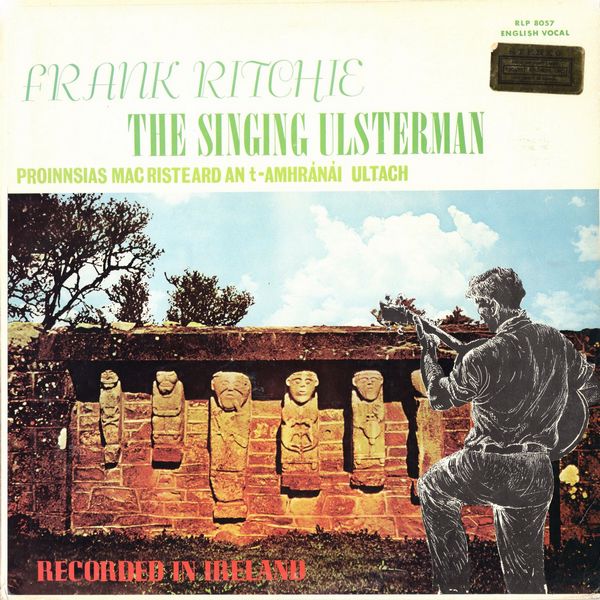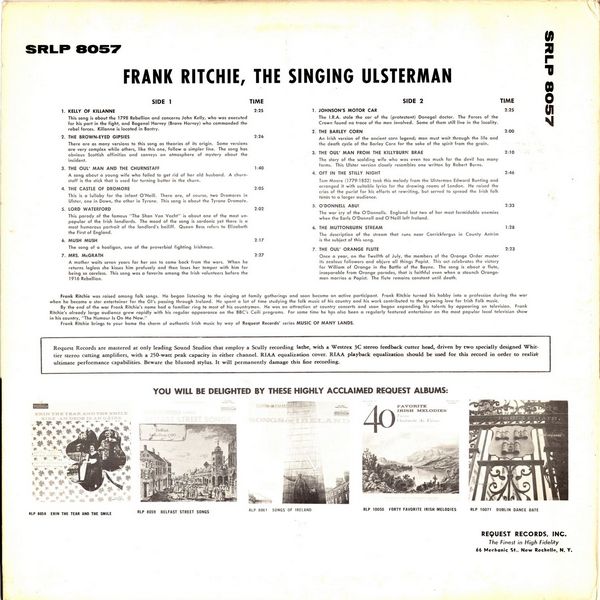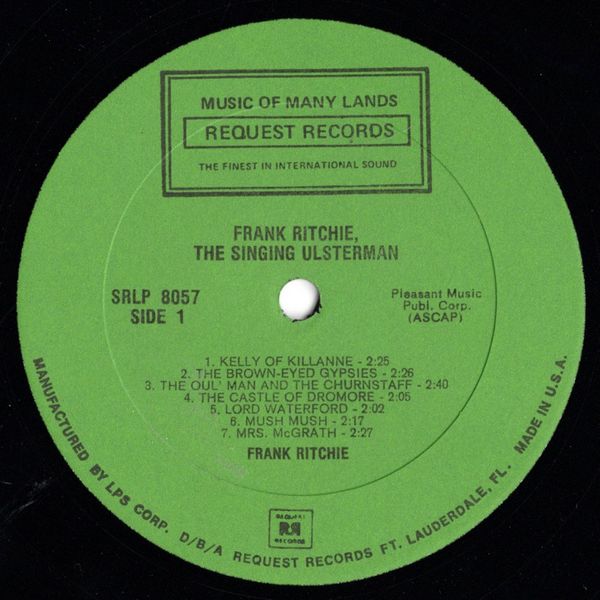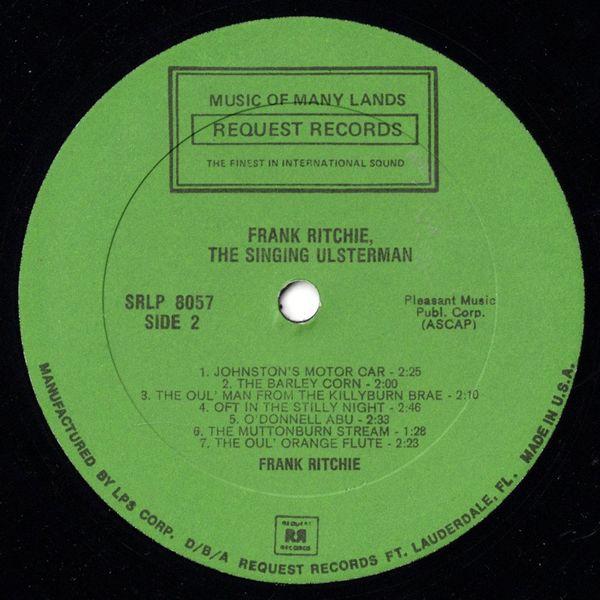
 |


 |
Sleeve Notes
Kelly Of Killanne — This song is about the 1798 Rebellion and concerns John Kelly, who was executed for his part in the fight, and Bagenal Harvey (Brave Harvey) who commanded the rebel forces. KilIanne is located in Bantry.
The Brown-Eyed Gipsies — There are as many versions to this song as theories of its origin. Some versions are very complex while others, like this one, follow a simpler line. The song has obvious Scottish affinities and conveys an atmosphere of mystery about the incident.
The Oul' Man and The Churnstaff — A song about a young wife who failed to get rid of her old husband. A churn-staff is the stick that is used for turning butter in the churn.
The Castle of Dromore — This is a lullaby for the infant O'Neill. There are, of course, two Dromores in Ulster, one in Down, the other in Tyrone. This song is about the Tyrone Dromore.
Lord Waterford — This parody of the famous "The Shan Van Vocht" is about one of the most unpopular of the Irish landlords. The mood of the song is sardonic yet there is a most humorous portrait of the landlord's bailiff. Queen Bess refers to Elizabeth the First of England.
Mush Mush — The song of a hooligan, one of the proverbial fighting Irishman.
Mrs. Mcgrath — A mother waits seven years for her son to come back from the wars. When he returns legless she kisses him profusely and then loses her temper with him for being so careless. This song was a favorite among the Irish volunteers before the 1916 Rebellion.
Johnson's Motor Car — The I.R.A. stole the car of the (protestant) Donegal doctor. The Forces of the Crown found no trace of the men involved. Some of them still live in the locality.
The Barley Corn — An Irish version of the ancient corn legend; man must wait through the life and the death cycle of the Barley Corn for the sake of the spirit from the grain.
The Oul' Man from The Killyburn Brae — The story of the scolding wife who was even too much for the devil has many forms. This Ulster version closely resembles one written by Robert Burns
Oft In the Stilly Night — Tom Moore (1779-1852) took this melody from the Ulsterman Edward Bunting and arranged it with suitable lyrics for the drawing rooms of London. He raised the cries of the purist for his efforts at rewriting, but served to spread the Irish folk tunes to a larger audience
O'Donnell Abu! — The war cry of the O'Donnells. England lost two of her most formidable enemies when the Earls O'Donnell and O'Neill left Ireland.
The Muttonburn Stream — The description of the stream that runs is the subject of this song. near Carrickfergus in County Antrim
The Oul' Orange Flute — Once a year, on the Twelfth of July, the members of the Orange Order muster its zealous followers and abjure all things Papist. This act celebrates the victory for William of Orange in the Battle of the Boyne. The song is about a flute, inseparable from Orange parades, that is faithful even when a staunch Orange. man marries a Papist. The flute remains constant until death.
Frank Ritchie was raised among folk songs. He began listening to the singing at family gatherings and soon became an active participant. Frank Ritchie turned his hobby into a profession during the war when he became a star entertainer for the GI's passing through Ireland. He spent a lot of time studying the folk music of his country and his work contributed to the growing love for Irish Folk music.
By the end of the war Frank Ritchie's name had a familiar ring to most of his countrymen. He was an attraction at country concerts and soon began expanding his talents by appearing on television, Frank Ritchie's already large audience grew rapidly with his regular appearance on the BBC's Ceili programs. For some time he has also been a regularly featured entertainer on the most popular local television show in his country, "The Humour Is On Me Now."
Frank Ritchie brings to your home the charm of authentic Irish music by way of Request Records' series MUSIC OF MANY LANDS.